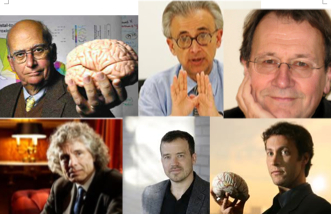See a photo of Lisa, her bio, and Part 1 of this Q&A.
Q&A with Lisa Cron, Questions 3 and 4:
Q: What people or entities have been most influential to you in your story work and why?
A: There have been two major influences in my work. The first is the thousands of failed novels, memoirs and screenplays I’ve read over the years as a story analyst, editor and literary agent. From them I learned something their authors had no intention of teaching me: how not to tell a story.
It was my job to slog all the way to the bitter end, even when after a few pages I knew I was probably the only person other than the author’s mom who would do so willingly. But unlike mom, I not only had to read the thing, I had to report on it — candidly. I began to notice that although each unsuccessful narrative or screenplay failed in its own spectacularly unique way, the underlying problems tended to be intriguingly similar.
It soon became clear that while there are indeed a gazillion ways to break a single story expectation, there are only a few nonnegotiable hardwired expectations.
The second thing that’s had a major impact on my work are recent breakthroughs in neuroscience and cognitive psychology, as reported by such renowned neuroscientists as Michael Gazzaniga, Antonio Damasio, and David Eagleman, cognitive scientist Steven Pinker, and literature scholars Brian Boyd and Jonathan Gottschall. Collectively they’ve uncovered, and documented, the evolution of the brain in relation to story.
The minute I began reading their work, I realized that these breakthroughs support my theory about story, its affect on us, and what we’re wired to respond to in every story we encounter. It was a genuine eureka moment for me — I leapt to my feet and whooped so loud my husband thought I’d won the lottery, the dog howled, and the cats ran under the bed. It was a very good day.
Q: What are some of the common threads that run through the works  of Gazzaniga, Damasio, and Eagleman, Pinker, Boyd, and Gottschall? Why do you think they are all researching and writing in story-related areas at this time?
of Gazzaniga, Damasio, and Eagleman, Pinker, Boyd, and Gottschall? Why do you think they are all researching and writing in story-related areas at this time?
A: The common thread is that all of these scientists and scholars talk about how we think in story; that story is how we make sense of the world. The really exciting thing is that, with the exception of Brian Boyd, it’s not that they’re researching the affect of story on the brain per se, it’s that they’re researching how the brain works, and they’ve discovered the fact that we think in story. The reason this is coming to light now is because of recent advances in neuroscience, especially functional magnetic resonance imaging (fMRI), which allows us to actually see how the brain is processing information in real time. It’s fascinating.
Note: These scholars are pictured above right, top row, from left, Gazzinga, Dimasio, Boyd; bottom row, from left, Pinker, Gottschall, Eagleman.
